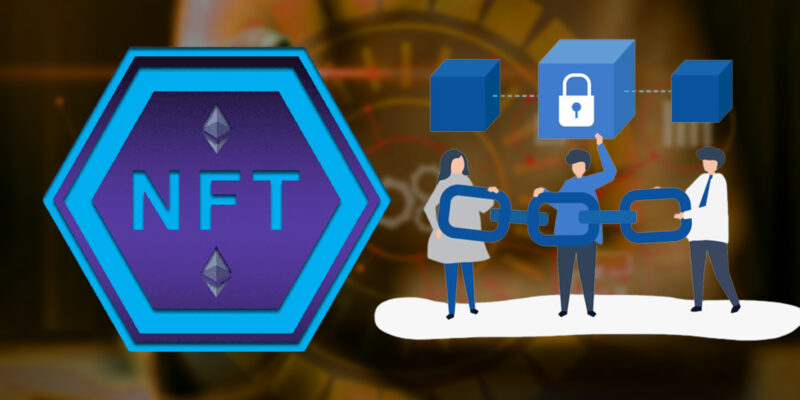- NFTs are exceptional cryptographic tokens that address responsibilities for explicit computerized things, be it craftsmanship, music, virtual land, or collectibles.
- Blockchain, then again, is the basic innovation that powers cryptographic forms of money and different decentralized applications.
In the domain of advanced development, two advances have arisen as major advantages: NFTs (Non-Fungible Tokens) and Blockchain. While both are necessary to the universe of cryptographic forms of money and advanced resources, they fill particular needs. Grasping the subtleties of innovation in NFTs and blockchain is fundamental for exploring the still-evolving scene of computerized monetary technology
The Pith of NFT Innovation
NFTs are indissoluble, non-exchangeable and have unmistakable qualities that put them aside from customary digital forms of money like Bitcoin and Ethereum.
Each NFT is put away on the blockchain, which guarantees its provenance, shortage, and genuineness.
The Groundwork for Blockchain
A circulated and permanent computerized record records exchanges across numerous PCs, guaranteeing straightforwardness, security, and evidence.
Blockchain utilizes agreement instruments like Proof of Work (PoW) or Proof of Stake (PoS) to approve exchanges and keep up with the respectability of the organization.
NFT Innovation: A More Intensive Look
Innovation in NFTs has reformed the idea of proprietorship in the advanced domain. Generally, advanced resources could be handily replicated, prompting issues of robbery and licensed innovation burglary. NFTs address this issue by utilizing blockchain innovation to make it interesting, undeniable advanced resources.
NFTs have tracked down a significant application in the world of craftsmanship. Computer specialists can now tokenize their manifestations, guaranteeing that each piece is standout and cannot be copied. This development has enabled craftsmen to adapt their work straightforwardly, without the requirement for intermediaries, hence changing the craftsmanship market.
Blockchain: The Foundation of Trust
Blockchain’s importance surpasses that of NFTs. It fills in as the establishment for digital currencies, empowering secure distributed exchanges without the requirement for mediators like banks. The decentralized idea of blockchain innovation guarantees that no single substance has command over the organization, upgrading security and lessening the gamble of control.
Additionally, blockchain innovation has monstrous potential in areas such as store network, the board, medical services, and money. Its straightforwardness and permanence make it ideal for following the beginning and excursion of items, getting clinical records, and working with crossline installments.
Analyzing
While both NFT innovation and blockchain add to the advanced biological system, they have particular capabilities. NFTs are a particular use of blockchain innovation, zeroing in on the making of one of a kind of computerized resources. Blockchain, then again, fills in as the all-encompassing design that empowers secure, straightforward, and sealed information capacity and exchanges.
NFTs flourish with the shortage and uniqueness of computerized resources, making them ideal for the craftsmanship and collectibles market. Blockchain, with its hearty security highlights, has more extensive appropriateness, upsetting ventures past advanced craftsmanship.
Conclusion
In the computerized age, NFT innovation and blockchain stand as the mainstay of advancement, each with its own space of impacts. NFTs have re-imagined possession and worth in the advanced domain, while blockchain has upset trust, security, and straightforwardness across different businesses. Figuring out the qualification among NFTs and blockchain is pivotal for anybody looking to get a handle on the complexities of the fast developing computerized scene. As these advancements keep on developing, their effects on ventures and society at large will undoubtedly develop, forming the eventual fate of computerized collaborations and exchanges.


Comments